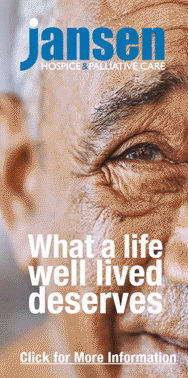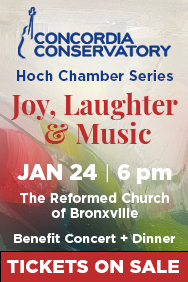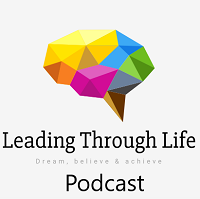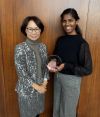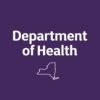Navigating the Journey from Acquiescence to Acceptance
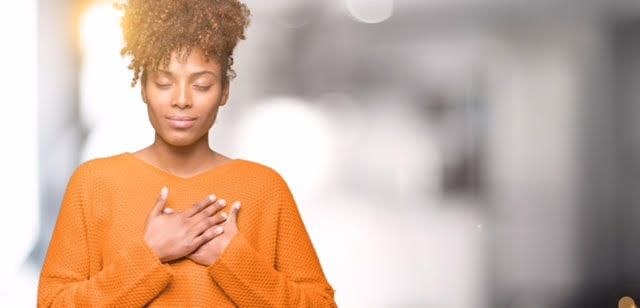
By Virgil Roberson, L.P., M. Div., NCPsyA, Executive Director
Apr. 28, 2021: During the past year, all of us have been forced to reckon with life as it is, rather than as we would like it to be. Some people have dealt more successfully with that challenge than others.
At The Counseling Center, some clients have been able to adjust to their new circumstances, even when it has involved significant loss; they’ve struggled through their emotions, whether grief, anger, or resentment, and have found acceptance. Many have shown admirable resilience by reinventing their business models, finding inventive ways to remain in touch with family and friends, and seeking creative outlets despite social distancing.
Other clients have continued to struggle in their new circumstances. Some remain focused on the job they lost, the increased financial strains they face, or the restrictions placed on their movements. Some have resisted the protocols or denied the toll the virus is taking. Some have found their views hardening despite new, contradictory evidence. Such clients may eventually acquiesce to their situation, when their circumstances become too overwhelming to be denied, but the outcome is rarely a positive one for their mental health.
Another way to look at it: some clients find acceptance and others acquiesce.
Acquiescence is passive, submissive; it is often a quiet, desperate defeat, a repression of one’s emotions, which can lead to resentment and passive aggressive behavior.
Acceptance, on the other hand, can be described as a surrender to reality that, in turn, empowers us to remain true to who we are. In finding acceptance, we allow change to enter our lives rather than trying to deny its power over us.
In acquiescing, one submits to the power—in this case, the power of Covid—and is dominated and defeated by it; in acceptance, one surrenders to the power in a way that allows for release, freedom, and self-empowerment.
Some simple examples might show how this dynamic can play out. A couple might desperately want their son to go to a particular college but eventually accept that he will go to a college of his choice that is within their financial means. A family member might want everyone to agree on politics but eventually accept that they just need to get along well enough to enjoy each other’s company. Similarly, an individual might want a perfectly trim body that impresses other people, but come to accept the need to be simply healthy.
In a recent issue of Psychology Today, editor Kaja Perina describes her husband’s desire for a villa on the Amalfi coast with a Porsche and Ferrari in the garage. Once her husband was able to admit he didn’t need that particular house, and wouldn’t want to deal with its upkeep in any case, he was released from his need. Perina concludes that “acceptance sheds the need. Acquiescence is not wanting to let go of the need and doing so only reluctantly.”
During Covid, some people who have had a hard time adjusting may be resisting reality in an attempt to regain control. But humans aren’t in control of this situation; the virus is. Once you accept that reality, liberation becomes possible.
Only then can you shift your focus, open up, and become empowered. As Melodie Beattie writes in The Language of Letting Go, “By accepting the facts of our own lives, we mature into feelings of joy and pleasure alongside griefs.”
Acceptance and acquiescence stand as stark contrasts to each other. But most people’s lives are not so clearly defined. Rather than finding full acceptance or submitting to full acquiescence, most of us live instead in a complex, ever changing combination of the two states. In some areas of our lives, we’re able to find acceptance and move on; in other areas, we continue to resist and become resentful, or we become stuck and depressed.
Acceptance is a worthy goal, but the journey to reach it looks different for each of us. Often that path is an uneven one, with bumps and pitfalls, advances and retreats. The process of finding acceptance takes time and can arouse a variety of emotions—anger, anxiety, depression--but its goal is release rather than repression.
Often reaching acceptance requires getting past strong emotions enough to be able to explore the situation with a calm thoughtfulness. But some people find it impossible to move forward at all. It helps to acknowledge that we’re each doing the best we can under trying circumstances, when many of our usual support systems are not available. In these times especially, perhaps we can give each other, and ourselves, a little slack and more than an ounce of compassion.
There can be a beneficial tension between acceptance and acquiescence. A client can say, “I want to care for other people, to give my time and talent to them, but I also want time to pursue my own desires, in my own way.” Or people might express a desire to care for the environment, and work to build a healthier ecosystem, yet also cling to a desire to buy the products they want and do what they want, despite the environmental cost. Living in this paradox, and being willing to explore its contradictions, can open us up to opportunities for growth. When we can acknowledge our resistance, we can be present in the moment and possibly find a temporary place of peace and contentment.
This understanding has been present in our culture for several decades; it’s been tested by time and experience. One of AA’s Twelve Steps speaks about the need to “accept life on life’s terms.” A bestselling book of a couple decades ago, Who Moved My Cheese by Spencer Johnson, suggests that “the quicker we adapt to change, the more satisfied we will be.”
Or, as Gabrielle Bernstein says in a slightly different way in The Universe Has Your Back, “When you return to focus on what you already embody and enjoy in your life, you can let go of what you think you need.”
In this way, despite living through a world-wide pandemic, we can find acceptance, surrendering to the circumstances so that we become empowered to claim our gifts, our identity, and our life in this moment.
If you feel stuck in acquiescence in some aspect of your life, and seek guidance toward acceptance, the Counseling Center is here for you. Our therapists have years of experience helping people to regain the equilibrium they need to see a situation clearly and find their way to a healthy resolution.
Photo courtesy The Counseling Center
Editor's note: As a public service, MyhometownBronxville publishes articles from local institutions, officeholders, and individuals. MyhometownBronxville does not fact-check statements therein, and any opinions expressed do not necessarily reflect the thinking of its staff.
Health Directory
Maxwell Institute
Intensive and clinic-level outpatient chemical dependency treatment and education services.
92 Yonkers Ave
Tuckahoe, NY 10707
(914) 337-6033
777 White Plains Road
Scarsdale, NY
Phone: 914. 472. 9090
website
Lawrence Home Care of Westchester
670 White Plains Road
Scarsdale, NY 10707
(914) 787-6158
www.lawrencehomecare.org

Jansen Hospice and Palliative Care
NewYork-Presbyterian Westchester
NewYork-Presbyterian Westchester provides access to primary care physicians and specialists from ColumbiaDoctors, the faculty practice of Columbia University Irving Medical Center and NewYork-Presbyterian Medical Group Westchester.
The 288-bed facility is home to a cancer center, maternity center, breast health center, two cardiac catheterization labs, and a state-designated Stroke Center.
NYP Westchester provides advanced services such as minimally invasive surgery, state-of-the-art orthopedic care, and access to clinical trials.
Click here to see areas of care.
55 Palmer Avenue in Bronxville
914-787-1000 Main


